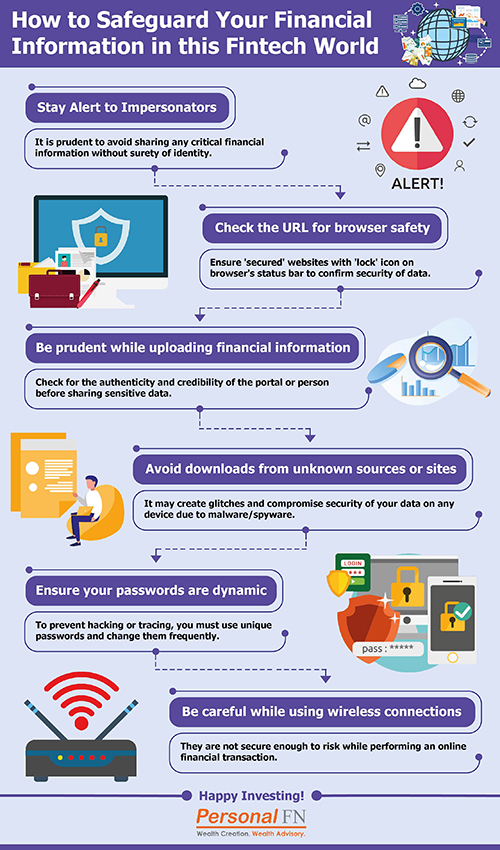16 skyrius: Finansinis švietimas ir ištekliai
Pamokos mokymosi tikslai:
Lorem ipsum dolor sit amet, consectetur adipiscing elit. Ut elit tellus, luctus nec ullamcorper mattis, pulvinar dapibus leo.
16.1 Staying Informed about Personal Finance
Continuously educating yourself about personal finance is crucial for making well-informed financial decisions and staying on top of your financial goals. Consider using the following resources to broaden your knowledge:

- Books and Publications: Reading personal finance books and publications can provide in-depth knowledge on various topics, such as budgeting, investing, and retirement planning. Some popular titles include “Rich Dad Poor Dad” by Robert Kiyosaki, “The Total Money Makeover” by Dave Ramsey, and “Your Money or Your Life” by Vicki Robin and Joe Dominguez.
Online Resources: Many websites and blogs offer personal finance advice and insights, such as NerdWallet, Investopedia, and The Simple Dollar. These resources can help you stay up-to-date on financial news, learn new strategies, and discover helpful tools.
Podcasts and Videos: Listening to personal finance podcasts or watching videos can be an engaging way to learn about money management. Some popular podcasts include “The Dave Ramsey Show,” “So Money” by Farnoosh Torabi, and “The Indicator from Planet Money.” Additionally, YouTube channels such as Graham Stephan and The Financial Diet offer informative and entertaining personal finance content.
16.2 Utilizing Financial Tools and Software
Using financial tools and software can help you effectively manage your finances and stay on track with your goals. The Simple Financial Community’s personal finance application is designed to provide you with valuable insights and resources to better understand your finances and budgeting:
- Budgeting and Expense Tracking: Our application offers user-friendly budgeting tools that help you create, maintain, and adjust your budget as needed. With customizable categories, you can easily track your income and expenses to identify spending habits and make necessary adjustments.
- Goal Setting and Progress Monitoring: Set short-term and long-term financial goals within the application and track your progress towards achieving them. Receive timely updates and reminders to help you stay focused on your financial objectives.
- Investment Tracking and Analysis: Monitor your investments and analyze your portfolio’s performance within the application. Gain insights into your asset allocation and make informed decisions regarding your investment strategy.
- Financial Education and Support: Access a wealth of educational resources within the application, including articles, tutorials, and webinars, to expand your financial knowledge. Join a supportive community of users and experts who can offer guidance and answer questions as you navigate your financial journey.
By leveraging a combination of educational resources and the Simple Financial Community’s personal finance application, you can gain the knowledge and tools necessary to make informed financial decisions and achieve your financial goals.
16.3 Mobile and Online Banking: Risks and Protections
While mobile and online banking make it easier to manage money, they come with risks like identity theft and scams.
Key tips to protect yourself:
- Always use strong passwords and two-factor authentication.
- Avoid logging into bank accounts on public Wi-Fi.
- Monitor your accounts weekly for suspicious activity.
- Set up alerts for large transactions or logins from new devices.
16.4 Comparing Financial Institutions and Services
Not all financial services are the same! Here’s what to compare:
- Checking Accounts: Compare monthly fees, ATM access, online features.
- Third-Party Check Cashing: Banks charge less than payday lenders or grocery stores.
- Online and Mobile Banks: Often lower fees but fewer physical branches.
- Avoiding Fees: Set up low-balance alerts and opt out of overdraft protection to avoid costly charges.
- Being Unbanked: Pros (cash control) vs Cons (lack of FDIC insurance, expensive check cashing).
16.5 Working with Financial Professionals
Collaborating with financial professionals can provide valuable guidance and expertise to help you achieve your financial goals. Here are some common types of financial professionals, their pros and cons, and best practices for working with them:
Financial Planners
Financial planners assist clients in creating comprehensive financial plans, which may include budgeting, savings, investing, retirement planning, and insurance strategies.
Privalumai:
- Holistic approach: Financial planners look at your entire financial situation to create a tailored plan that meets your unique needs and goals.
- Expertise: Financial planners have specialized knowledge in various aspects of personal finance and can offer professional advice.
Trūkumai:
- Cost: Hiring a financial planner can be expensive, with fees varying based on their fee structure (e.g., hourly rate, flat fee, or percentage of assets under management).
- Potential conflicts of interest: Some financial planners may receive commissions from selling specific financial products, potentially affecting their recommendations.
Best Practices and Tips:
- Look for certified financial planners (CFPs) who have met rigorous education, examination, and experience requirements.
- Verify the planner’s credentials and disciplinary history through organizations such as FINRA or the SEC.
- Discuss the planner’s fee structure and potential conflicts of interest upfront.
- Investment Advisors
- Investment advisors specialize in managing clients’ investment portfolios, offering recommendations on asset allocation, risk management, and specific investment products.
Investment Advisors
Privalumai:
- Expertise: Investment advisors have specialized knowledge of financial markets and investment products.
- Time-saving: Investment advisors can manage your investments, allowing you to focus on other aspects of your financial life.
Trūkumai:
- Kaina: Investment advisors typically charge fees based on a percentage of assets under management, which can be expensive for some investors.
- Limited scope: Investment advisors may focus primarily on investments and not address other aspects of your financial situation.
Best Practices and Tips:
- Choose a registered investment advisor (RIA) who is registered with the SEC or a state securities regulator.
- Discuss the advisor’s investment philosophy and strategies to ensure they align with your goals and risk tolerance.
- Review the advisor’s performance history and compare their fees with other advisors.
Tax Professionals
- Tax professionals, such as certified public accountants (CPAs) or enrolled agents (EAs), specialize in tax planning, preparation, and compliance.
Privalumai:
- Expertise: Tax professionals have in-depth knowledge of tax laws and regulations, ensuring accurate and compliant tax filings.
- Tax-saving strategies: Tax professionals can recommend strategies to minimize your tax liability, potentially saving you money.
Trūkumai:
- Cost: Hiring a tax professional can be expensive, particularly for complex tax situations.
- Seasonal availability: Some tax professionals may be difficult to reach outside of tax season due to high demand.
Best Practices and Tips:
- Choose a tax professional with relevant experience and credentials, such as a CPA or EA.
- Ensure the tax professional has experience with your specific tax situation (e.g., self-employment, rental properties, or foreign income).
- Discuss the professional’s fees and availability upfront to avoid surprises.
When working with any financial professional, always do your due diligence, ask for referrals, and ensure they are acting in your best interest. A well-chosen financial professional can offer valuable expertise and support to help you achieve your financial goals.
16.6 Regulatory Agencies that Protect Consumers
Several federal and state agencies protect your savings and investments:
- FDIC and NCUA: Insure your deposits up to $250,000.
- Federal Reserve: Regulates banks and manages the economy through monetary policy.
- Securities and Exchange Commission (SEC) ir Consumer Financial Protection Bureau (CFPB): Protect investors and consumers from fraud and abuse.
- Indiana Securities Division (or your state’s equivalent): Offers local protections for investors.
16.7 Protecting Your Personal Financial Information
To protect your identity and money:
- Keep your Social Security number private.
- Check your credit reports regularly.
- Shred sensitive documents before throwing them away.
- Only share personal financial data with trusted entities like your bank or tax agency.
If identity theft happens:
- Contact your bank and freeze your accounts.
- Report the fraud to the Federal Trade Commission (FTC) at IdentityTheft.gov.
- Notify the major credit bureaus.
Paveikslėlis: How to Safeguard Your Financial Information in the FinTech World
Aprašymas:
This infographic provides a list of essential security practices for protecting your sensitive financial information in the age of digital finance. It visually outlines key actions you can take, such as creating strong passwords and being aware of phishing scams. The overall purpose is to educate users on how to safely navigate the world of online banking and FinTech applications.
Svarbiausios išvados:
- The foundation of digital security is using strong, unique passwords for each financial account and enabling Two-Factor Authentication (2FA) as an extra layer of protection.
- Be constantly vigilant for phishing scams, which are deceptive emails, text messages, or phone calls designed to trick you into revealing your confidential data.
- It is crucial to avoid using unsecured public Wi-Fi for any banking or financial transactions, as your information can be easily intercepted.
- You should regularly monitor your financial statements and account activity to quickly identify and report any suspicious or unauthorized transactions.
Informacijos taikymas:
- By adopting these habits, you can dramatically reduce your risk of suffering from identity theft and financial fraud.
- These security practices are fundamental for safely using the convenient tools offered by FinTech and online banking.
- Making cybersecurity a part of your routine is a critical component of modern financial management and protecting your assets.
16.8 Financial Contingency Planning
Emergencies like job loss, medical bills, or a car accident can derail finances.
Always have a contingency plan:
- Maintain 3-6 months’ worth of expenses in an emergency fund.
- Know which bills must be paid first (housing, utilities, transportation).
- Have a backup source of credit (like a low-interest credit card) only for emergencies.
Pagrindinė pamokos informacija:
Lorem ipsum dolor sit amet, consectetur adipiscing elit. Ut elit tellus, luctus nec ullamcorper mattis, pulvinar dapibus leo.





